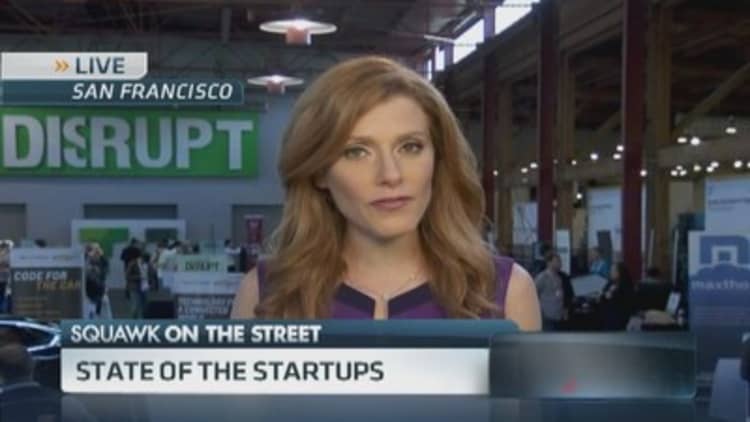Vonage Chairman Jeffrey Citron knows a thing or two about investing in technology.
Citron is also managing partner at KEC Holdings, the parent company of KEC Ventures—a capital fund based in New Jersey. But he's really got his eye on Israel.
Under Citron's leadership, KEC has now invested in two Israeli start-ups, and according to Jeff Parkinson, partner at KEC Ventures, the firm is looking at investing in a number of other Israeli start-ups as well.
So why go to Israel to find the next best thing in tech?
(Read more: Rich, forget charity, start businesses: McNealy)
"Israel has been on the forefront of technological innovation for some time," Citron said. "Yet, we believe that they are at the nascent stage of creating disruptive, industry-changing businesses that will shape the future. Thus, the opportunity for investors is as great as it's ever been."
He and his team became familiar with Israeli start-ups because of the Worldwide Investor Network (WIN), which helps connect investors to foreign entrepreneurs, particularly those based in Israel.
"There are 5,000 start-ups in Tel Aviv—and discovering the next Waze is an investor's dream. But becoming the next successful Israeli start-up takes strategic funding and relationships abroad," said Eyal Bino, founder of WIN.
(Read more: Start-ups go perk crazy)
"We are the bridge to helping both Israeli start-ups navigate the funding process in the U.S. with a major focus on NYC becoming a hub for global innovation, as well as identifying Israeli start-ups with great potential and matching them with relevant investors and clients," he said.

Waze, which was developed by Israeli start-up Waze Mobile, is a mobile navigation app that was acquired by Google in June, reportedly for more than $1 billion.
(Read more: Google Adds Waze to Get You Out of Traffic)
KEC invested in start-ups FireBlade, a website security firm, and Giraffic, a video-on-demand software firm, giving about $2 million to each so far.
Citron and his team said they were attracted to FireBlade because it was tackling the problem of securing and protecting online and digital assets, which they fear will become more and more vulnerable in coming years.
(Read more: Forgot chaebols, South Korea embraces start-ups)
As for Giraffic, KEC said that since it takes an incredible amount of bandwidth to consume video content, users often experience buffering and crashing. Giraffic is attacking this problem by removing the pressure from the content delivery network via a peer-to-peer distribution model.
Parkinson said KEC is one of the few East Coast shops willing to write a big check for such start-ups.
To date, WIN has facilitated 10 programs showcasing 58 start-ups totaling more than $30 million in funding. Bino said that a third of that funding came through direct introductions to New York-based investors.
WIN's focus is Round A, which means a minimum investment ranging from $1 million to $5 million.
Most of this money is usually for marketing, sales and talent, with fewer amounts for research and development.
"As such, our focus is to connect our start-ups to early stage venture funds focused on A and B round investments, family offices and super angels who can put around ($250,000) and north of that," Bino said.
As with any investment, results are uncertain. Taking a chance on a company whose headquarters are halfway across the world adds another level of risk, because the company typically does not cultivate enough contacts to integrate itself quickly into the U.S. market. Taking time to gain that kind of traction could prove costly.
(Read more: Pet tech: Start-ups see big business in data)
Once funding is secured, the CEO usually has to make the move from Israel to New York, and cultural as well as language barriers are sometimes inescapable. Typically, research and development stays in Israel and the management team is in New York, with mostly Americans running the marketing and sales divisions. In that sense, it means having almost two separate companies, and communication problems can develop.
Bino said investors don't like to travel abroad for meetings and usually prefer to invest in companies in their own backyards.
That's why he said WIN does the brunt of the work to vet companies and choose the ones they feel have the most potential for growth in the U.S. market.
—By CNBC's Dina Gusovsky. Follow her on Twiiter @DinaGusovsky


